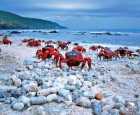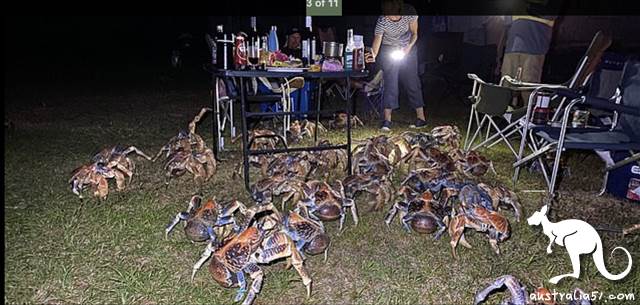
Recently, on Christmas Island, Australia, when a family barbecue in the open air, a group of big crabs were attracted by the smell. These huge crabs even climbed up the table and grill, but the crabs were delicious. But because they are endangered species, they are forbidden to catch and eat.
The Christmas Island family Lutic (Amy Luetich) and her family have been living on Christmas Island for several years, and they are camping with some other families in Grangeville (Grants Well), which is located in the jungle of the island.
"We've been camping in this jungle a couple of times, but we' ve never seen so many'robbers'".
Lutic added that when we started cooking, they flocked in, and my son counted 52.
Coconut crab is a ferocious crustacean, up to one meter long, sensitive smell.
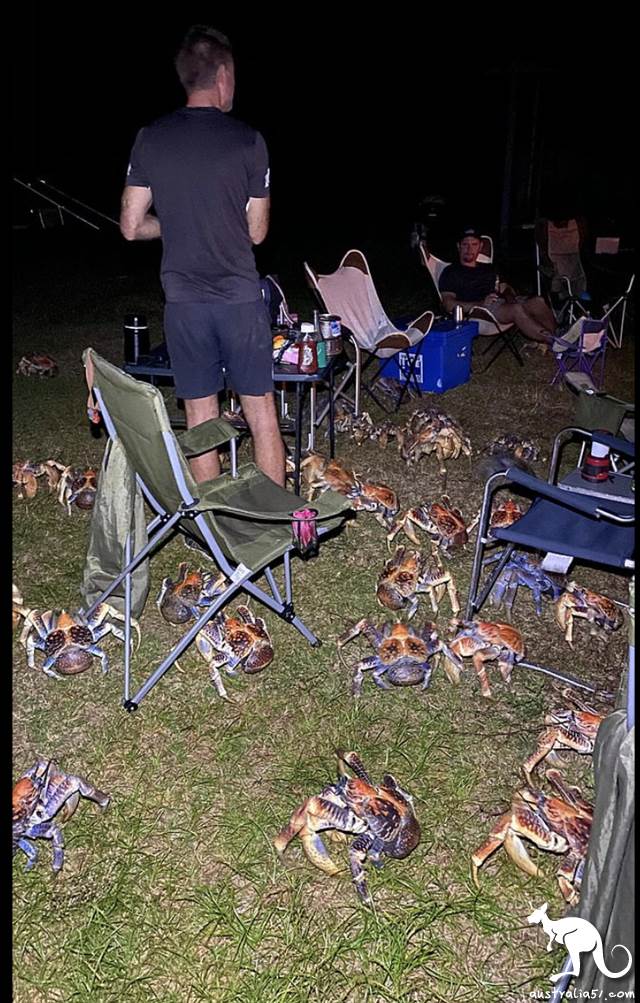
As you can see from the photo, a large group of coconut crabs are waiting to eat leftover food
Many netizens joked ," Heaven is healthy and delicious, and the food is delivered to the door. "
But this coconut crab, delicious taste, but in Australia to protect animals, is not edible.
"We all saw that it wasn't my first hand, it was its own climb to the barbecue grill cooked. "
There are also very humorous netizens, simulated crab dialogue :" Let me see who is so fragrant "oh, it is myself. "
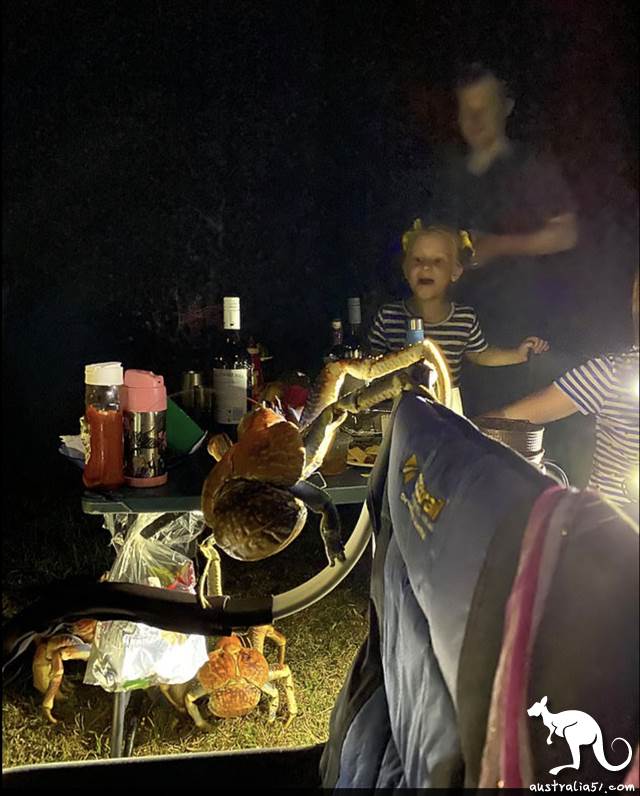
The fierce crab was caught climbing to the table and couldn't wait to start
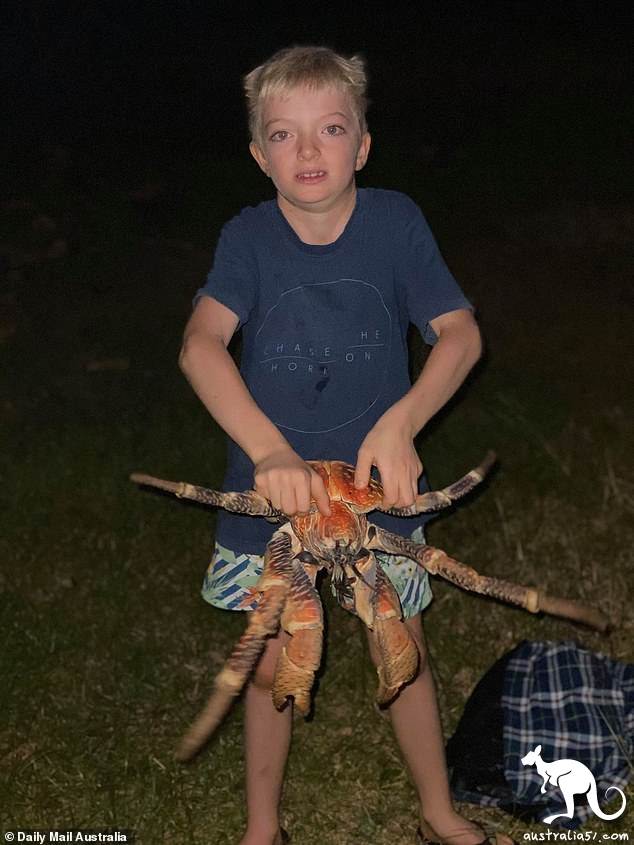
What is coconut crab?
- Coconut Crab is the world's largest terrestrial crustacean, especially on Christmas Island in Australia
- Coconut crabs can weigh up to 4 kilograms, one meter wide, and some long-lived coconut crabs can live for 50 years
- Coconut Crab is considered an aphrodisiac delicacy on the other side of the Pacific Ocean. It is a protected species in Australia and can not be eaten
- Coconut crabs feed on seeds and fruits
- Coconut Crab is a special climbing animal that moves quickly when it smells like food
- Coconut Crab is called Robber Crab (Robber Crabs) because the crab likes to steal and run away
- Coconut crabs are relationship close to hermit crabs and are protected by shells or coconut until they develop into a hard abdomen
